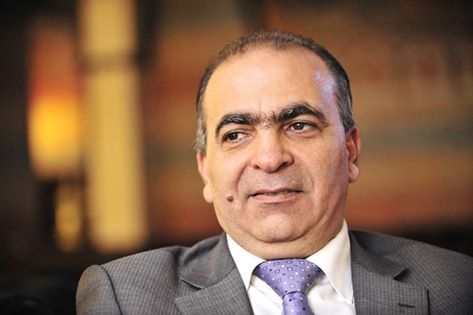As expected, the Geneva talks have failed due to the absence of any elements that could make it succeed. Russia, with its Iranian ally and their tyrannical client in Damascus, wanted a chance to win time and resolve the situation militarily, while the United States pushed to start talks regardless of failure or success or how much time they took, in order to deceive the American public and the world into thinking they are trying to end the disaster in Syria, as well as to justify its failure to make any real effort to stop it.
Meanwhile, the Syrian opposition’s allies advised the High Negotiations Committee to attend Geneva without being able to pressure any of the active parties to take steps to lighten the tragedy of the siege, imprisonment, or shelling of civilians as a necessary prelude to starting negotiations – which will clearly demand that the HNC make many concessions from the ‘red lines’ they agreed on in Riyadh.
Just as negotiations ground to a halt, Russian warplanes carried out a monstrous aerial attack in Aleppo and its northern countryside, thereby providing air cover for militias backed by Iran and the remains of Assad’s forces, which managed to advance and break the siege of Nabul and Zahraa, displacing tens of thousands of Syrians who gathered by the closed Turkish border. Meanwhile, militias in the south of the country managed to seize Sheikh Miskeen, extending their progress in Othman and taking control of the Damascus-Jordan border highway, where many were also displaced.
In view of the reality of the situation that has developed in Syria in recent weeks, it will not be difficult to conclude that the Russians and Iranians are intent on doing everything they can to settle the matter militarily, and that the US, despite some statements of denunciation and condemnation devoid of all substance, is content with what is happening, and had even learned of the plan in advance. Free Syrian Army leaders claim their support has been completely cut since the Vienna conference in October.
It is therefore necessary that the Syrian people and the opposition’s political and military institutions seriously consider the options available to them in order to prevent the continuation of the monstrous destruction which Syria is being subjected to and forestall the displacement of Syrians and the tragedy it contains on a national and humanitarian level. This calls for fast and serious movement in every direction.
To crystallize these options, there are a number of necessary steps:
1. Compose a delegation from the various political and military opposition formations and demand immediate meetings with the decision-makers in Turkey, Qatar, and Saudi Arabia, and ask them to explicitly declare what they can do to stop the retreat of the fronts and halt the advances of the Russian-Iranian forces.
2. Demand direct meetings with European and American leaders and ask them the following question: Will their daily protests against the brutality of the Russian bombardment of Syrian towns and cities remain just words, or could they develop into steps to end this brutality — and what is needed from the opposition to assist in that?
Listen closely to their response and analyze it carefully, word for word. The basis for this evaluation should take into account the interests of Syria, its people, its territorial integrity, and its society, far from any regional or other ideological ties.
3. Perform a realistic assessment of the possibility of merging all armed factions under the banner of a unified army (including the Syrian Democratic Forces, if they can agree on the unity and territorial integrity of Syria, as they enjoy clear US and European support) based on belief in the unity of Syria as a state for all its citizens and the preservation of rights for all its constituents, far from the black and white flags and the ideologies which call to turn Syria into an Islamic state. This is essential as there is little hope for any serious support for the opposition forces — not from the international community, and not from some of the other Syrian constituencies — if these flags are present, as no one has any intention to make it an alternative to the mafia of Assad.
Evaluate the results of these steps wisely and logically, and then make a policy reliant upon these results and take a clear decision.
Either go to the talks with realistic limits (not necessarily just) and save what can be saved by focusing on two basic principles: first, the right of Syrians to choose the form of their state and constitution by their free will, and their right to choose their leaders; second, the duty of the United Nations and the international community to fully monitor and supervise any future referendums or elections and guarantee freedom for Syrians in expressing their opinions according to the roadmap outlined in resolution 2254.
Or work on changing the balance of power on the ground and limiting the massive destructive capability of the Russian air force, an issue which first requires a clear decision from the national opposition to stay away from all those who think of imposing their ideology on other Syrians, and from the supporters of the national opposition to enter a clear confrontation with Russia and Iran. Then, following this, attend negotiations to achieve better conditions, with the assurance that the aim of the Syrian revolution is not the defeat of another Syrian, but to move toward a Syria as a nation for all Syrians, guaranteeing rights for all, equality without discrimination on the basis of religion, sect or national affiliation, and removing all those who carried out war crimes whether affiliated with the opposition or the regime.
Responsibility for the information and views set out in this article lies entirely with the author.


